University Review
Changing the world through impactful research and knowledge transfer
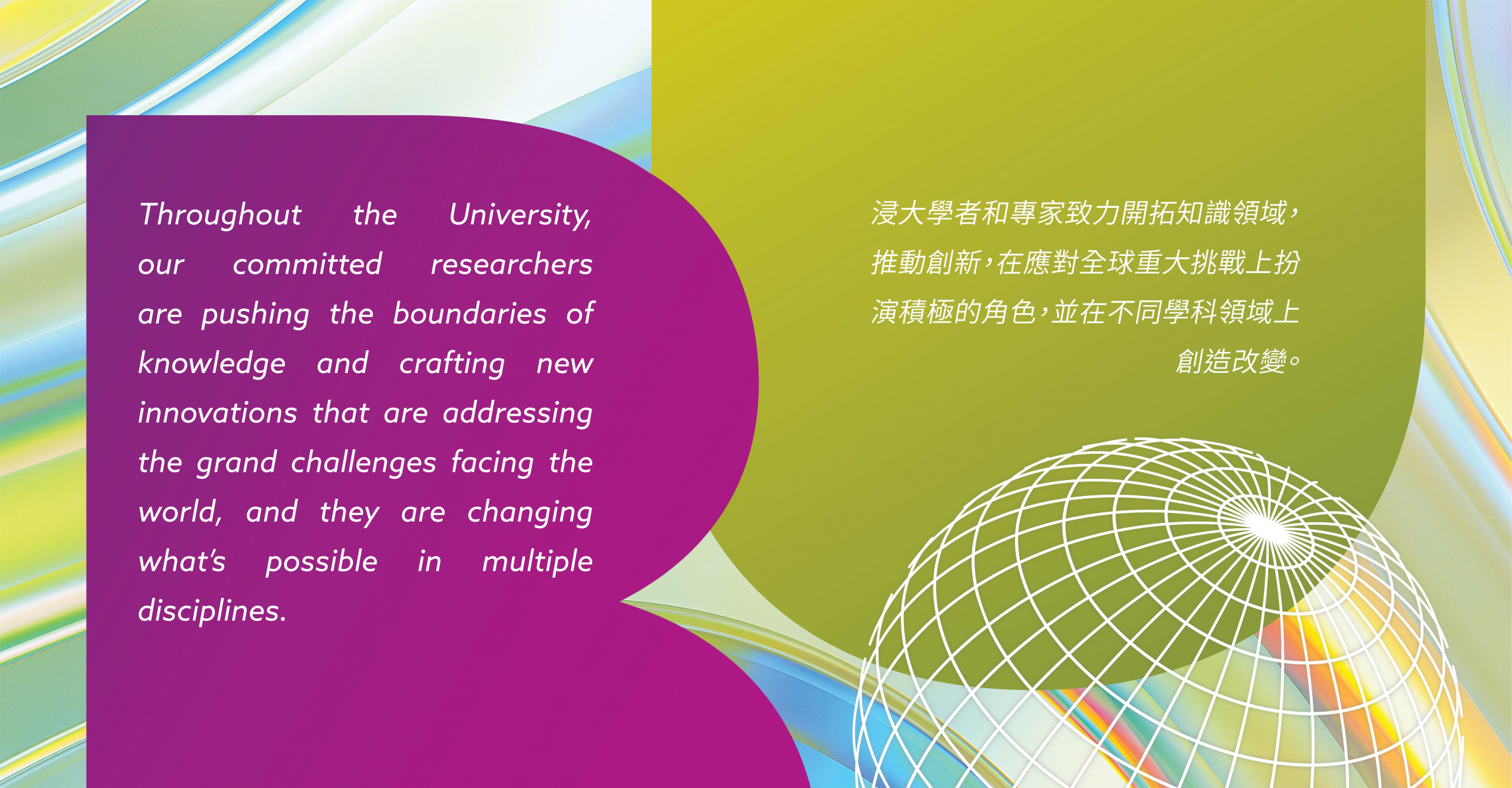

Our excellent RAE results
The University Grants Committee (UGC) announced the results of the Research Assessment Exercise (RAE) 2020 in May 2021. In particular, the University's high research standards were recognised, and it performed very strongly in a number of key research areas.
HKBU's academic disciplines cover 24 of the 41 Units of Assessment (UoAs) in the RAE, and the University performed excellently in a number of individual UoAs:
- In terms of the proportions of "internationally excellent" (three stars) and "world leading" (four stars) research projects, HKBU is the best performer among all institutions in four UoAs, including communications & media studies (81%), area studies, cultural studies and other arts/humanities (73%), music & performing arts (76%) and physical education, sport, recreation & physical activities (69%);
- Considering the "world leading" (four stars) research projects, HKBU performed the best among all institutions in the UoAs of translation (34%) and music & performing arts (45%); and
- In the Panel of Computer Science / Information Technology, 95% of our research projects were rated "internationally excellent" (three stars) and "world leading" (four stars). This result was close to the best performance among all universities.
The excellent RAE results have reaffirmed HKBU's established strengths in the arts, humanities, communication and media studies, sport as well as Chinese medicine. The University will continue to leverage these areas of strength to extend the frontiers of knowledge with the support of our cutting-edge research in artificial intelligence and big data analytics.
Developing cutting-edge art-tech
Blending art with science to reflect on climate change
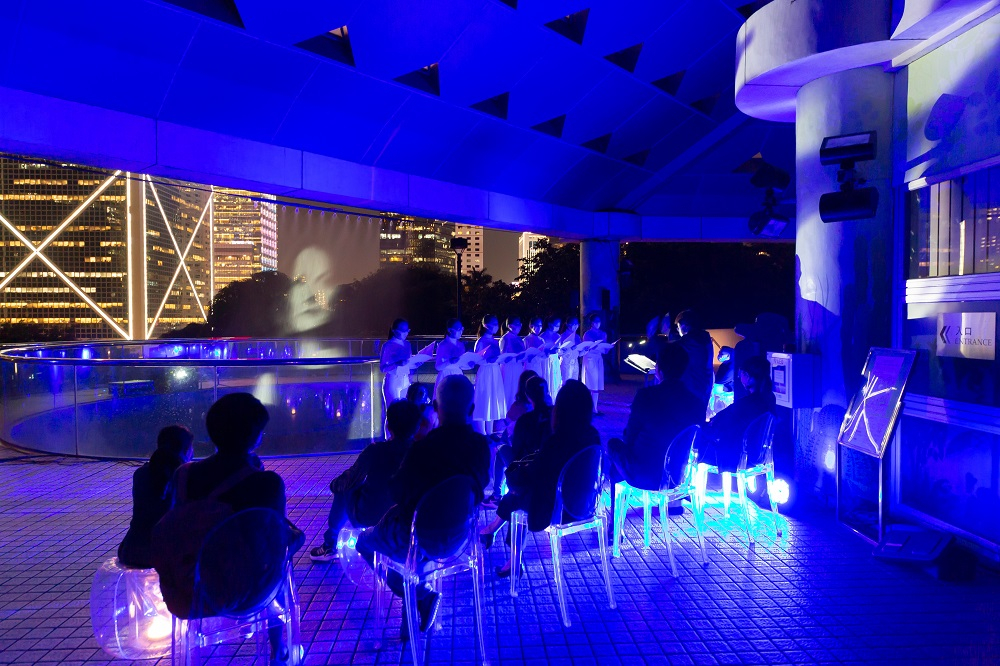

By uniting music, visual arts and computer science researchers, the multidisciplinary "Space to Breathe" project inspired people to reflect on climate change through a novel production called Aria that combined holographic vocal performances, light installations and big data analysis on social media posts about air pollution in Hong Kong and mainland China.
Tracing the boundaries between humans and machines
Our musicians and artists are working on an artistic production that uses AI to further investigate the application of machine learning to music and different aspects of creative practice. The research team is exploring how these frameworks can mimic and produce sounds, and they also hope to understand and diffuse the boundary between humans and machines in a live performance context.
HKBU and Tsinghua University to establish AI Laboratory for Creative Arts
The HKBU Augmented Creativity Laboratory and the Institute of Artificial Intelligence at Tsinghua University signed a collaboration agreement in January 2021 to establish the Tsinghua-HKBU AI Laboratory for Creative Arts. Under the agreement, HKBU and Tsinghua University will undertake collaborative research in the broad fields of science and the arts, and they will combine their respective strengths to conduct impactful research on AI-based art creation, especially music composition and music performance.
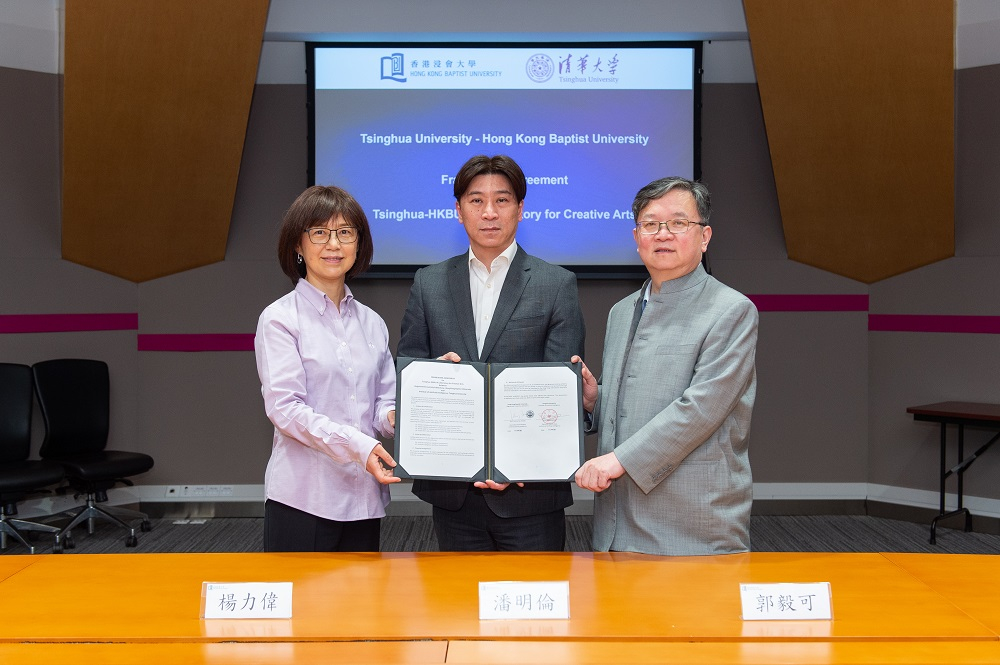

Breakthroughs in health and well-being
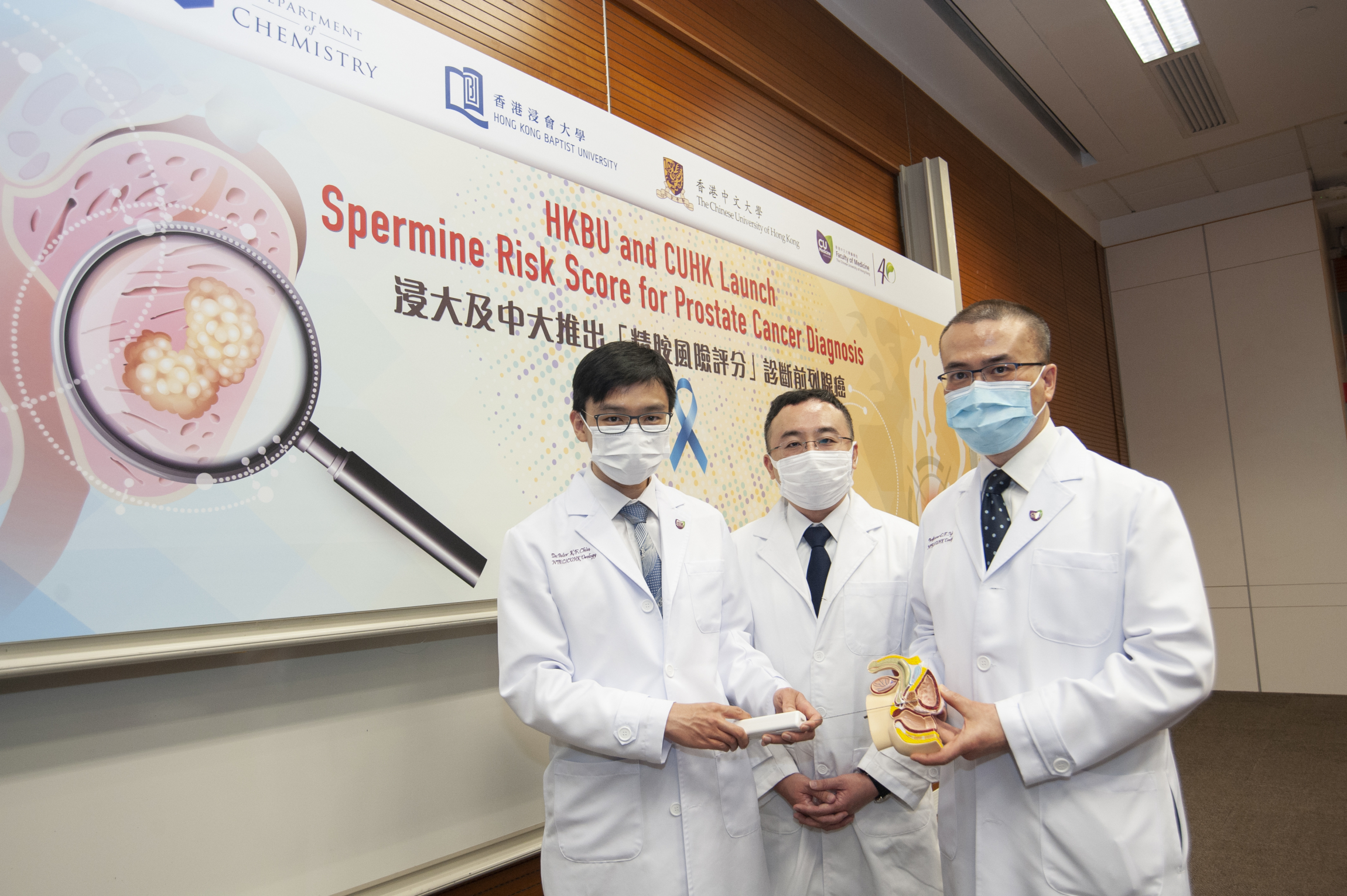

Rethinking the diagnosis of prostate cancer
Professor Gary Wong (Department of Chemistry) worked with researchers from The Chinese University of Hong Kong to develop the Spermine Risk Score which, coupled with the use of a urine test, provides a non-invasive and more reliable method for the diagnosis of prostate cancer. The new method overcomes issues with the serum prostate-specific antigen test, which is commonly used for prostate cancer diagnosis, and it also offers a more accurate estimation of patients' prostate cancer risk and helps to reduce the number of unnecessary biopsies.
Novel targeted therapy for triple-negative breast cancer
Professor Bian Zhaoxiang and Dr Kwan Hiu-yee (School of Chinese Medicine) collaborated with scientists at Cornell University to develop a novel targeted therapy for triple-negative breast cancer (TNBC). The new treatment uses a nano-carrier, which is made out of polyester urea urethane and decorated with folate and arginine, to enhance the anti-cancer effect of the Chinese medicine compound gambogic acid while reducing the damage it causes to off-target organs.
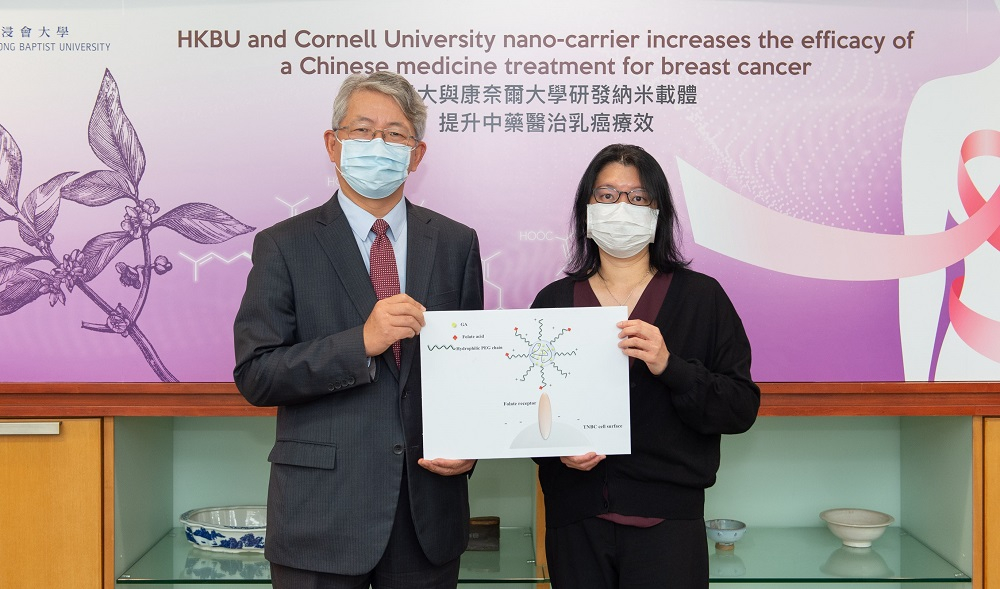

Using nanomaterials to detect Alzheimer's disease
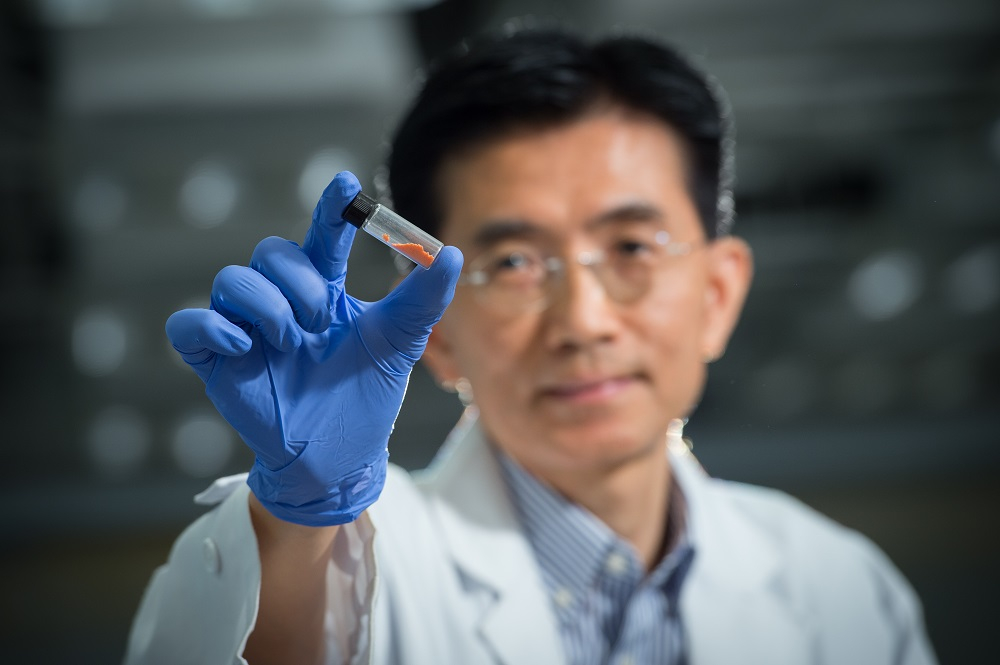

Led by Professor Wong Man-shing and Professor Li Hung-wing (Department of Chemistry), an HKBU research team created a novel nanomaterial that offers hope of a breakthrough in the diagnosis of Alzheimer's disease (AD). This nanomaterial can be used as a magnetic resonance imaging contrast agent, which enables the real-time visualisation and detection of the size and number of amyloid-beta (Aβ) plaques in the brain, the main hallmark of AD. Furthermore, experiments conducted by the research team found that the modified nanoparticles can inhibit the Aβ aggregation process and thus effectively reduce the neurotoxicity of Aβ.
Chinese medicine formula shows promising results for Alzheimer's disease
Professor Li Min (School of Chinese Medicine) and her research team developed a new formula called NeuroDefend for Alzheimer's disease, and it has shown promising results in mice. The novel formula is composed of six Chinese herbal medicines, and it reduced the levels of Aβ and abnormal tau protein aggregation in their brains by 30 to 40%. It was also revealed that the formula improves cognitive function and memory in mice.
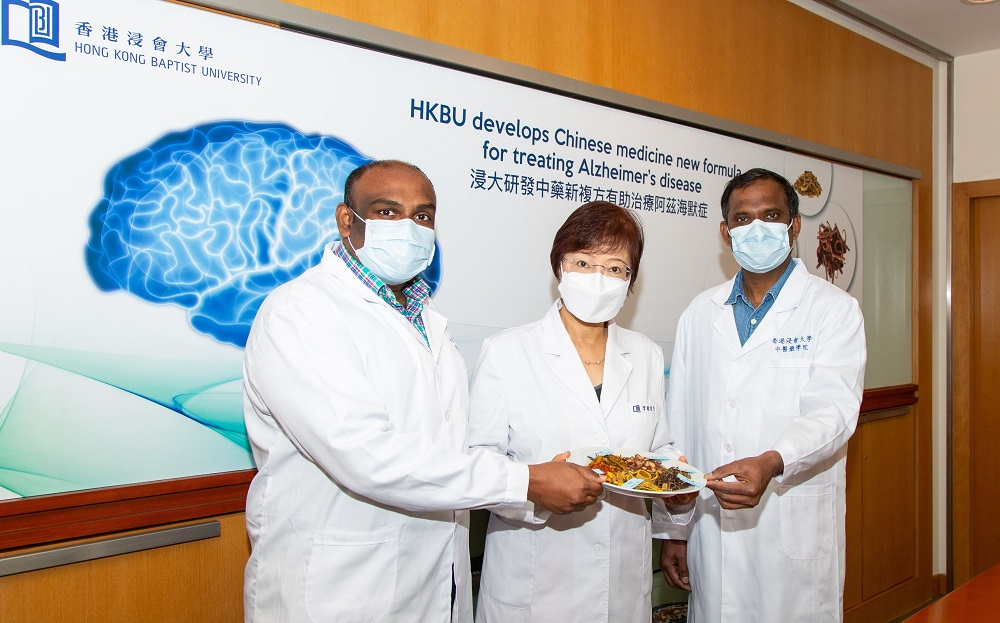

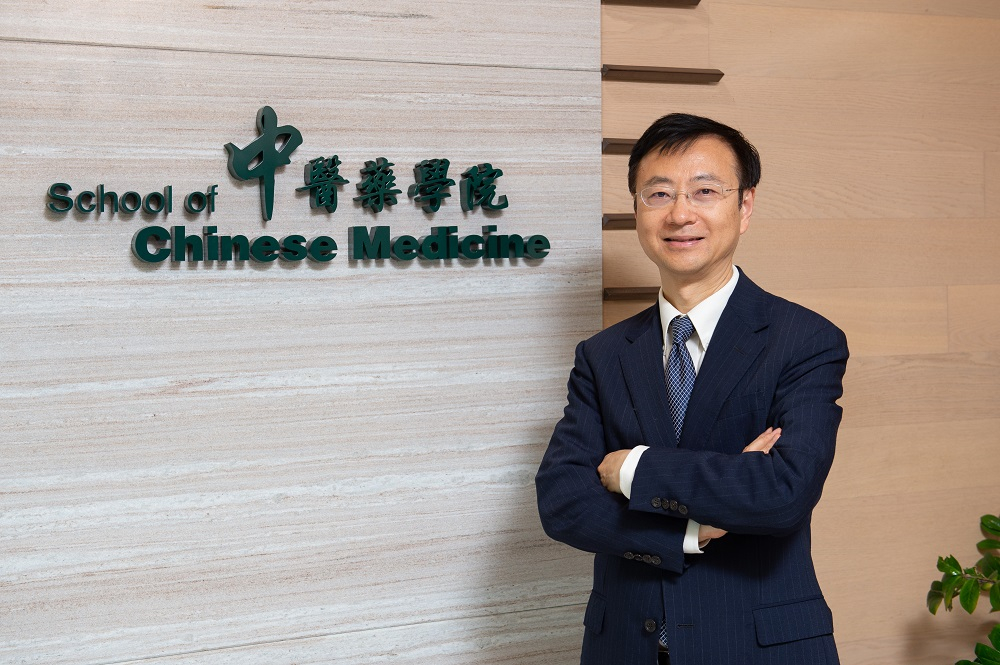

Hyocholic acids show promise in predicting and treating diabetes
A series of studies led by Professor Jia Wei (School of Chinese Medicine) found that hyocholic acid and its derivatives, a group of bile acids collectively known as HCAs, regulate blood glucose levels in humans, and they could be developed into an agent for the prediction and treatment of type 2 diabetes.
How cancer changes the composition of gut microbiota
Professor Jia also led a review that examined the changes that occur in the composition of the gut microbiota across the stages of colorectal cancer (CRC) and hepatocellular carcinoma (HCC). These pathological changes lead to intestinal inflammation, which is a common factor for both CRC and HCC. The team observed that the shift in balance from a normal to an inflammatory and then a less inflammatory environment occurs during the move from early to later disease stages, and this pattern led to the hypothesis that tumour survival depends on a less proinflammatory tumour microenvironment.
Using Chinese medicine to reduce stroke-related brain damage
A study led by Professor Ken Yung and Dr Sze Cho-wing (Department of Biology) revealed that prophylactic administration of An-Gong-Niu-Huang Wan (AGNHW), a classic prescription in traditional Chinese medicine, reduced the level of brain damage in rats with ischemic stroke. The study brings hope that AGNHW can effectively prevent strokes in humans.
Establishment of new centre for Chinese medicine drug development
With funding from the Innovation and Technology Commission's Health@InnoHK programme, the School of Chinese Medicine established the "Centre for Chinese Herbal Medicine Drug Development Limited" in the Hong Kong Science Park in September 2020. The Centre aims to accelerate the development of Chinese herbal medicine (CHM)-based drugs by enhancing the quality of pre-clinical and clinical CHM research, and it will transform the results into pharmaceutical products for international markets. It also serves as a strategic platform to promote collaboration among local and international researchers, institutions and industry.
Extending the frontiers of knowledge
Unlocking the genomic secrets of deep-sea organisms
Professor Qiu Jianwen (Department of Biology) and colleagues have shed light on the adaptions and improvements that have enabled the deep-sea clam, and the special symbiotic bacteria that live in its gill cells, to survive and thrive in the extreme conditions found in the ocean depths. The team examined the genomic features of the clam in more detail, and they identified several features – including the shift from eating phytoplankton to bacteria-based food, and the presence of haemoglobin – that have enabled the clams to adapt to the extreme deep-sea environment.
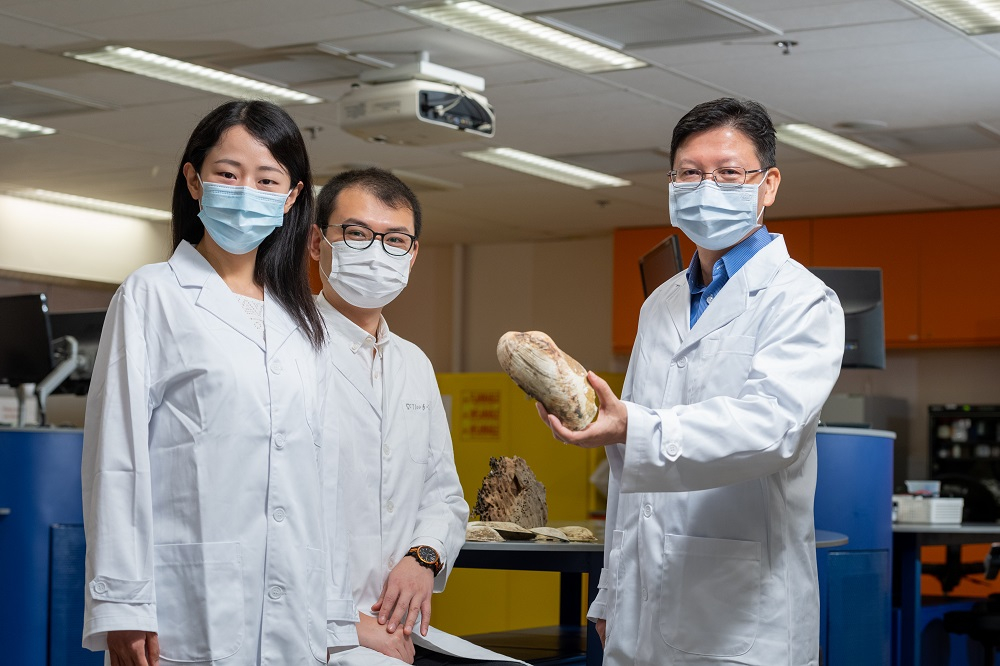

Intensification of heatwaves over China
A study involving Dr Li Jianfeng (Department of Geography) found that heatwaves over China have become more intense, longer-lasting, and more frequent in recent decades. Both observations and model simulations show that the occurrence probability of observed human-perceived heatwaves doubled between 1961 and 2012, and if the warming level in China reaches 3.5°C respective to the preindustrial period, the increase is expected to be 11.95-fold than that in the preindustrial period. Southern China is the region where the intensification of heatwaves is most prominent due to human-induced warming, and increased adaptation and mitigation efforts are needed to offset the increasing heatwaves due to urban expansion and pollution.
Bringing the history of the Battle of Hong Kong to life
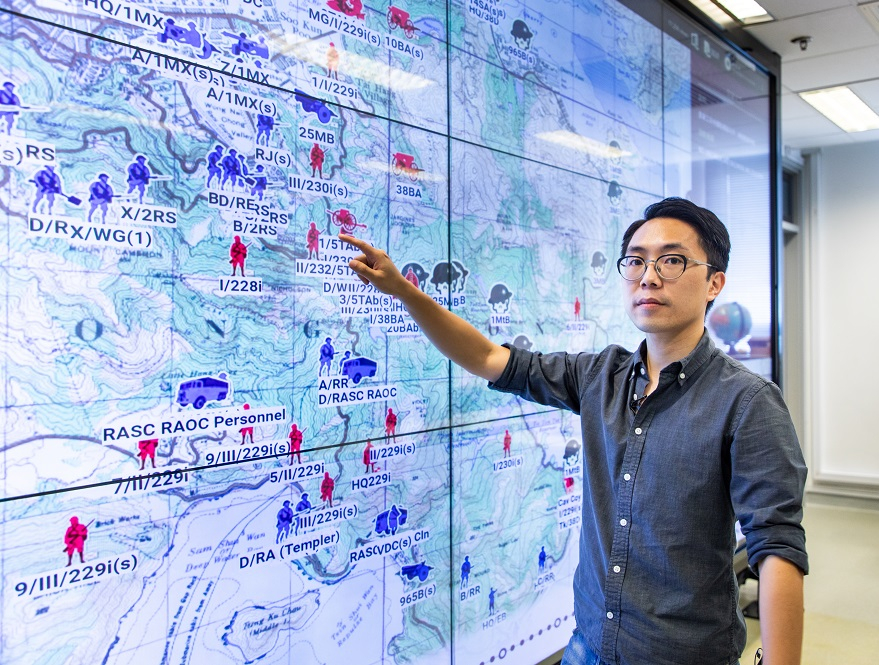

Dr Kwong Chi-man (Department of History) and colleagues have created a new interactive map that brings to life the Battle of Hong Kong (8-25 December 1941), and the historical documents and objects left behind. The team spent two years researching, analysing primary sources and collecting first-hand historical materials, and they are now working on designing a mobile app and training resources for teachers so they can use the map with students in the classroom.
Deaf and mute painters in early modern Europe
Dr Angelo Lo Conte (Academy of Visual Arts) examined the careers of painters with hearing and speech impairments who were active in the early modern period in Europe, particularly how the practice of art provided opportunities for them to cross the barriers created by their disabilities. The research contributes to our understanding of the relations between disability and the practice of art.
How mindfulness links with creativity at work
A study by researchers from the School of Business and the Department of Sport, Physical Education and Health suggests that mindfulness helps employees come up with ideas, identify problems, search and encode information more easily. According to the research, a mindful employee is more open to ideas outside of their usual realm, and such enhanced flexibility facilitates the employee's involvement in the creative process.
Exploring the presence of Chinese auteurs in cyberspace
Through a research project entitled "Renegotiating Film Authorship in Cyberspace: Chinese Filmmakers, Global Fans, Politics of Participation", Dr Dorothy Lau (Academy of Film) explored the presence of Chinese filmmakers, or auteurs, in participatory cyberspace, and she analysed their negotiated status in relation to audiences' motivations and activities. Focusing on four established Chinese filmmakers, the study examined how their positioning is affected and how their style is recoded in the participatory cyber-network.
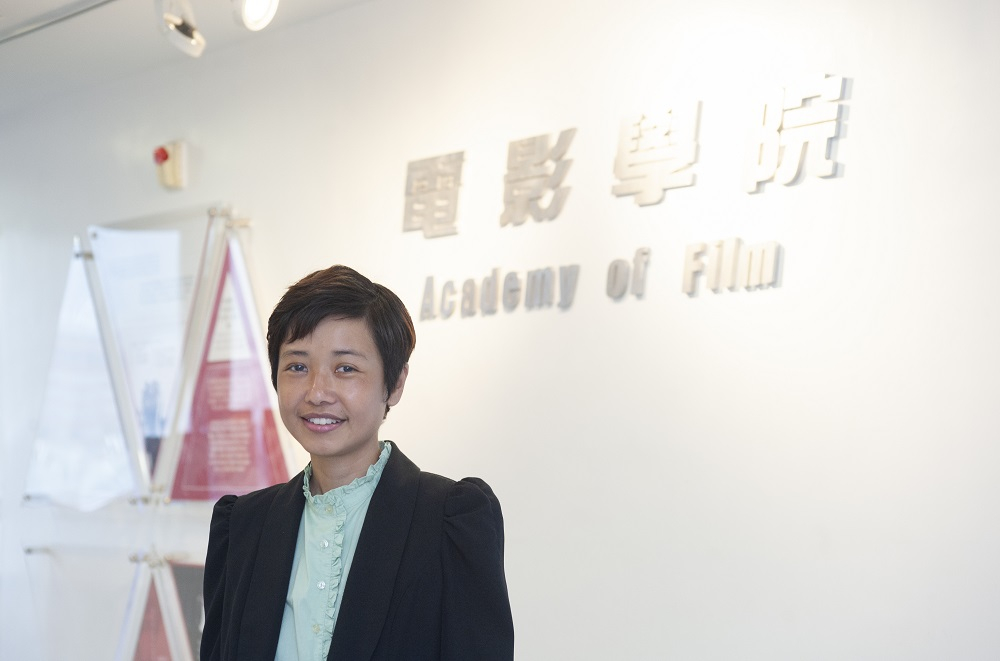

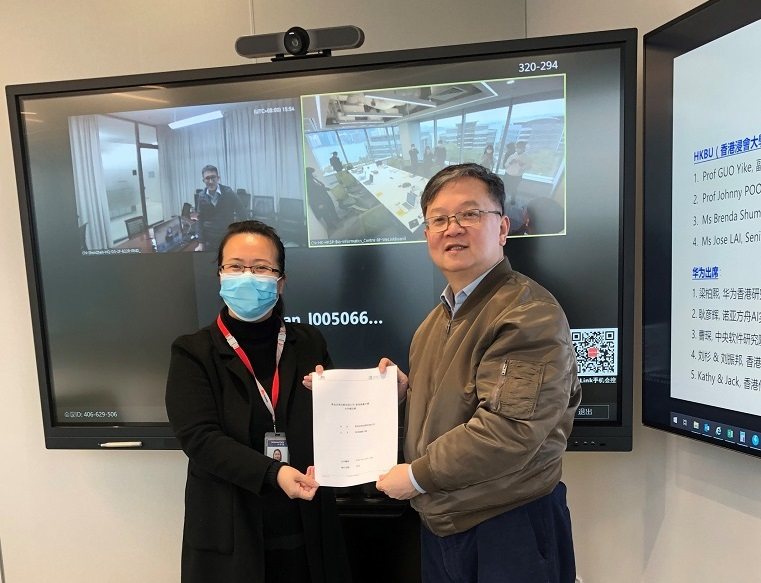

Strategic AI collaboration with Huawei
HKBU has signed a Memorandum of Understanding (MoU) with Huawei to embark on a joint collaboration in artificial intelligence (AI) research that aims to nurture local innovation talent and build a sustainable ecosystem for the industry. The strategic research collaboration will focus on artificial intelligence, information technology, communication technology, new materials, energy and more. Both parties also expect to establish the "HKBU-Huawei Joint Laboratory of Artificial Intelligence" in the near future.
Transferring knowledge to the community
Rehabilitation for discharged COVID-19 patients
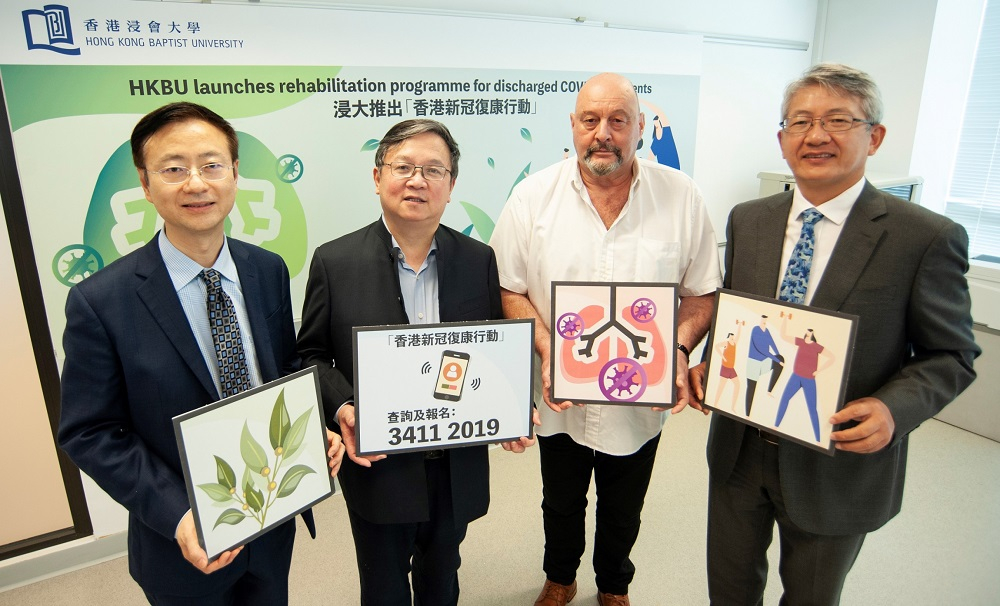

Scientists and health professionals at HKBU developed a unique Hong Kong Rehabilitation Programme for COVID-19. Discharged COVID-19 patients can experience several debilitating physical and mental changes, such as shortness of breath, impaired lung function and depression, but the treatment programme delivers comprehensive recovery care by integrating cardiorespiratory and resistance exercise training with the use of Chinese herbal medicine. The interdisciplinary research team is being led by Professor Guo Yike, Vice-President (Research and Development), Professor Julien Baker (Department of Sport, Physical Education and Health), Professor Bian Zhaoxiang and Professor Jia Wei (School of Chinese Medicine).
LeaveHomeSafe adopts AI-enhanced technology developed by HKBU
The artificial intelligence (AI)-enhanced technology developed by Professor Xu Jianliang (Department of Computer Science) and colleagues for BU-Trace, the city's first and HKBU's own COVID-19 alert system, has been incorporated into LeaveHomeSafe, a contact tracing mobile app launched by the Government. Powered by a novel AI algorithm, LeaveHomeSafe utilises the built-in accelerometer in mobile phones to automatically record the time when users get out of a taxi by monitoring the motion patterns of users.


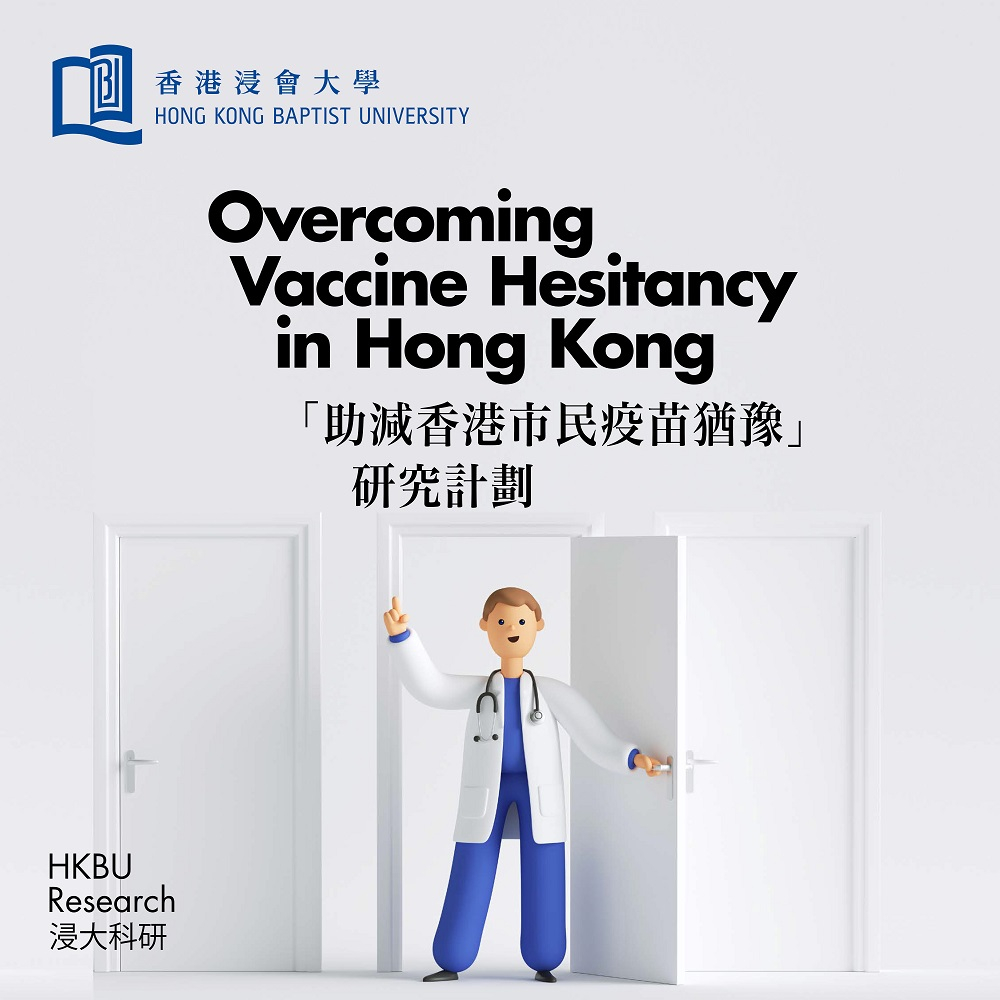

Understanding vaccine hesitancy
The System Health Laboratory, together with scholars from the School of Communication and Film and the Department of Computer Science, has launched an interdisciplinary research project entitled "Overcoming Vaccine Hesitancy in Hong Kong", which studies and analyses the interconnected factors influencing vaccine hesitancy. The research team suggests that public health professionals should emphasise the protection provided by vaccines, and they should also formulate a more effective communication strategy.
Exploring the cultural aspects of COVID-19
HKBU held the online international symposium "COVID-19 and Beyond, Culturally Speaking" in September 2020, and over 1,300 participants from all over the world gathered to examine and reflect on the COVID-19 pandemic from a cultural perspective. The symposium was organised by the Faculty of Arts, and five world-renowned experts also delivered keynote speeches on the epidemiological and future trends of COVID-19, as well as the human and moral issues related to the pandemic.
Engaging with the community through Knowledge Transfer Partnership projects
Professor Cheung Siu-yin and Dr Kwok Hei-man (Department of Sport, Physical Education and Health) worked with the Elderly Service Division of The Neighbourhood Advice-Action Council to carry out a project that introduced a modified version of Taekwondo to older adults and their caregivers in Hong Kong. The project developed a new modified form of the martial art, and it also aims to study the impact of Taekwondo and modified Taekwondo on life satisfaction, cognitive functioning and functional fitness of older adults. The results of the study will help service providers assess the possibility of implementing Taekwondo training and modified training for older adults.
Dr George Mak (Department of Religion and Philosophy) promoted the history of the Chinese Bible to the public through the development of a docent training programme for the Hong Kong Bible Society's exhibition "Encountering the Word of God". The training programme nurtured a group of docents, or exhibition guides, with the knowledge of the exhibition's subject matter – which was informed by Dr Mak's research work, as well as an awareness of the importance of preserving historical artefacts – and it helped them explain the content to the public.
Dr Kwok Wai-luen (Department of Religion and Philosophy) worked in partnership with the CEDAR Fund, an independent Christian relief and development organisation, to develop a peacebuilding programme for teachers, social workers, and religious workers that aims to alleviate the social issues and divisions that have arisen from political divergences since the social unrest in June 2019. The programme offers emotional care, post-traumatic self-help, and spiritual guidance, and it will also develop workshops and a programme manual for teachers, social workers and religious workers with their input from the action research.
Working with the disabled community to advance social dialogue and inclusivity
Dr Benedict Rowlett (Department of English Language and Literature) worked with university students and members of disabled communities in Hong Kong on a "Playback Theatre" project that provided the opportunity to participate in theatrical performances that encouraged meaningful communication and personal growth. "Playback Theatre" is a form of improvisational theatre where actors listen, interpret, and use a range of expression methods and techniques to re-enact stories told live by the audience, and the show encouraged the audience to reflect on the normative definitions and social concepts regarding disability and identity. It also allowed them to appreciate and learn more about inclusiveness and diversity.
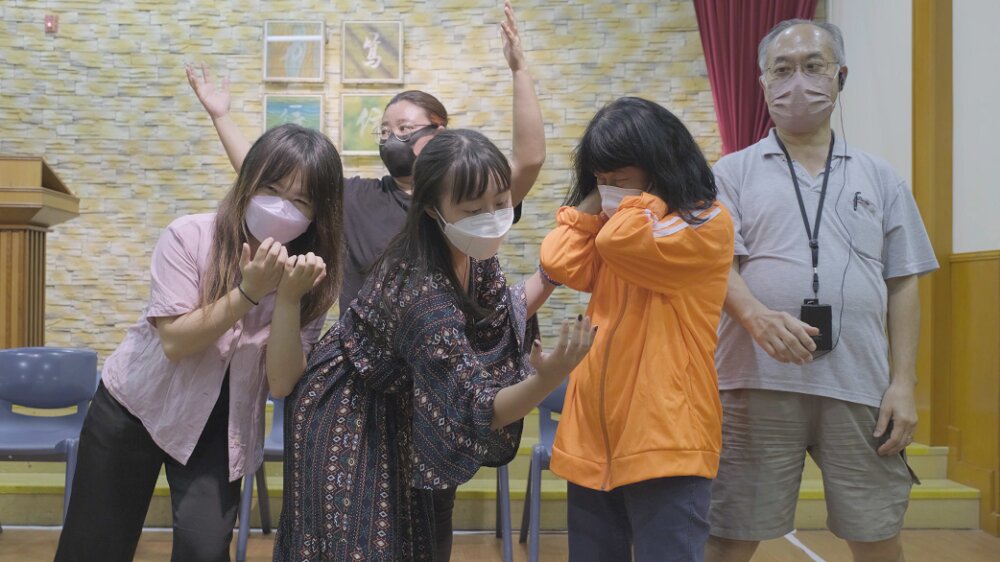



Fighting fake news
Leading researchers from the School of Communication and Film launched the HKBU FactCheck Service at the end of 2020 with the vision of providing an authoritative, professional and impartial fact-checking service amidst the proliferation of fake news, and to improve the public's media literacy in the digital era. The highly transparent project integrates the latest academic research in journalism and communication studies, and it is the first research-based, systematic fact-checking service that has been launched and operated by an independent academic institution in Hong Kong. Ultimately, the System could lead to the development of a human-machine hybrid intelligence system, representing an innovative example of the artificial intelligence-supported fact-checking concept.
Easing mental health issues
Dr Pan Jiayan (Department of Social Work) led a team comprising investigators from the Department of Social Work and the Department of Computer Science to develop an online cognitive behavioural therapy programme named "EASE Online" that aims to help people with social anxiety disorder. The programme was launched at the start of 2021, and it incorporates virtual reality scenarios that are common triggers for social anxiety, allowing participants to respond as they would to real-life situations and receive counselling services from mental health professionals.
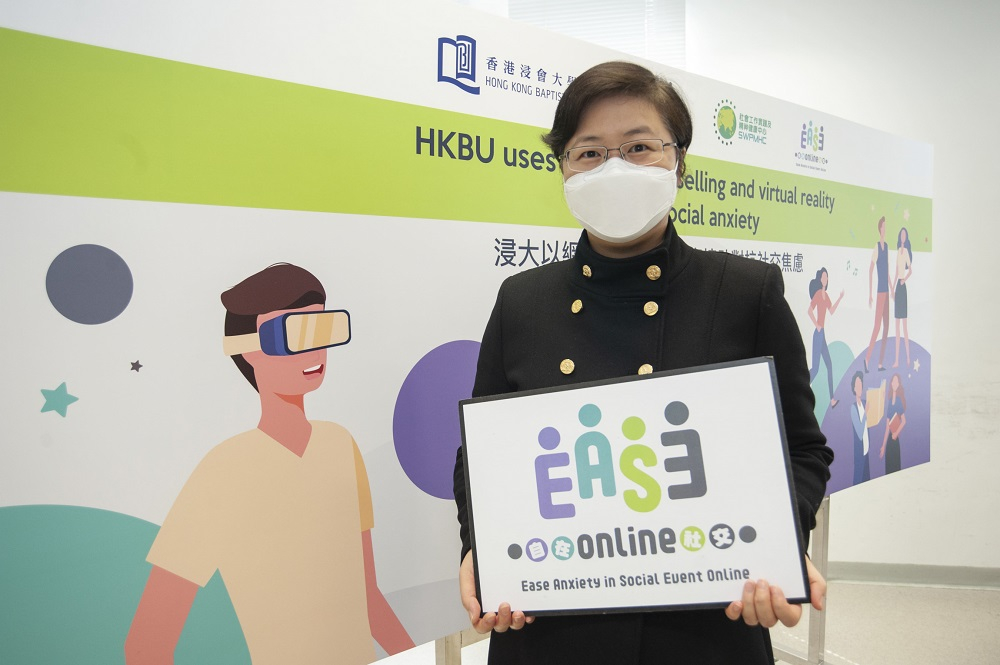

Entrepreneurship education and activities
Advancing entrepreneurship training under the "new normal"
Despite the various challenges presented by the COVID-19 pandemic during the 2020-21 academic year, the Knowledge Transfer Office provided a total of 185 online and offline entrepreneurship activities as well as training sessions offered by local and global partners, and over 10,600 students benefited from the initiatives.
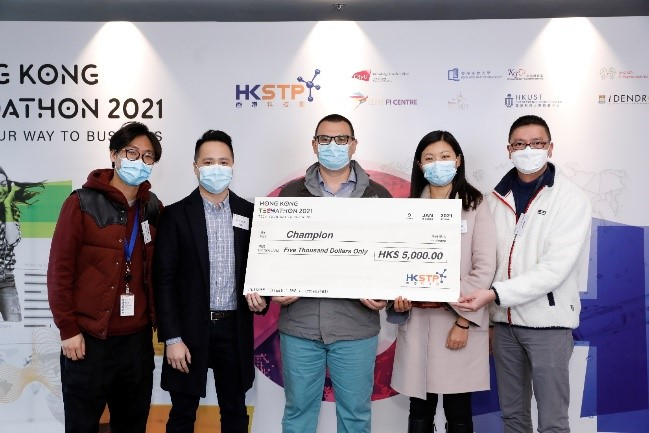

Student team wins top prize at Hong Kong Techathon 2021
The innovative "RoboHire" project, which was devised by postgraduate students Jovan Trajceski and Irina Flamme (School of Business), was named the winner of the AI & Fintech track at the Hong Kong Techathon 2021.
Jointly organised by the Hong Kong Science and Technology Parks Corporation and local universities, the annual seven-day start-up challenge took place in January. Over 1,000 participants enrolled in the competition and the four tracks – New Generation Technology, AI & Fintech, Smart City and Social Impact & Health Tech – received over 100 project submissions for the final presentation.
HKBU start-up teams supported by entrepreneurship programmes
Five HKBU start-up teams were successfully admitted to the Science and Technology Entrepreneur Programme (STEP) offered by the Hong Kong Science and Technology Parks Corporation. STEP is a one-year start-up programme for tech-focused entrepreneurs, and the admitted teams will receive all-round support from the Programme, including seed funding of HK$100,000 per team, as well as coaching and training.
Two other start-up teams were also sponsored by the Cyberport Creative Micro Fund (CCMF). The teams were recognised for their high potential digital tech start-up projects and business ideas. They can use the HK$100,000 grant over six months to produce proof of concepts and prototypes.
SEED Incubator 2021
Forming part of Project SEED (Student Engagement, Enrichment and Development), SEED Incubator 2021 aimed to nurture students' enthusiasm in terms of starting a business, and it helped them develop the skills that are required for entrepreneurship. Three series, namely "Startup Training Series", "Meet the Boss Series" and "Startup Saturdays 2021", were conducted from April to July 2021.
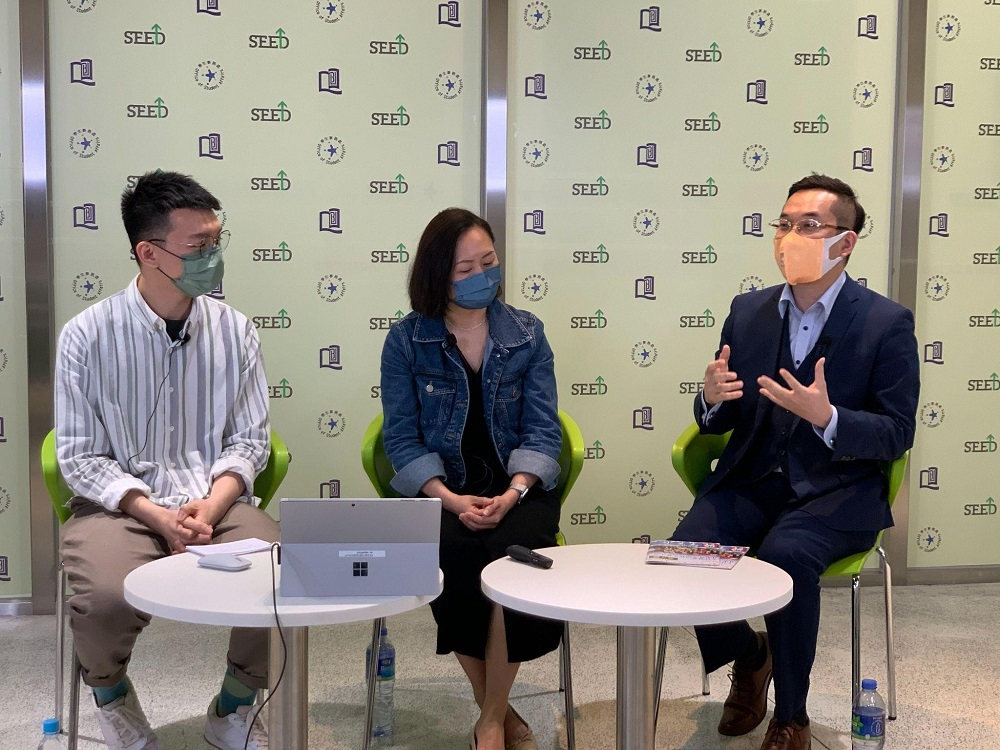

The "Startup Training Series" held four seminars to help students develop the essential capabilities required for the challenging entrepreneurship journey. Topics included current trends, social media strategy, student entrepreneurship testimonials, and smart commerce tutorials.
The "Meet the Boss Series" provided students with a deeper understanding of the cultural industries, catering and online shopping. The founders of Walk in Hong Kong, Cafe REVOL and GeTheMall shared their knowledge through Zoom and pre-recorded videos. Nearly 300 students joined the online sessions to learn more about their valuable experience of running a business.
"Startup Saturdays 2021" was a support scheme that helped students experience entrepreneurship. Through the scheme, expert advice and seed money was offered, and after two sessions of team matching and mock pitching, the students got the chance to present their business plans to the judging panel. Five winning teams, including Umirror (developing an augmented reality system for the real-world environment), Civio (shooting video CVs), PetPetUnion (providing activities for pets and pet owners), iRetireeHK (a mobile app that aims to enhance mental wellness for the young and old) and HyGGE (making scented candles), were each granted HK$30,000 seed money.